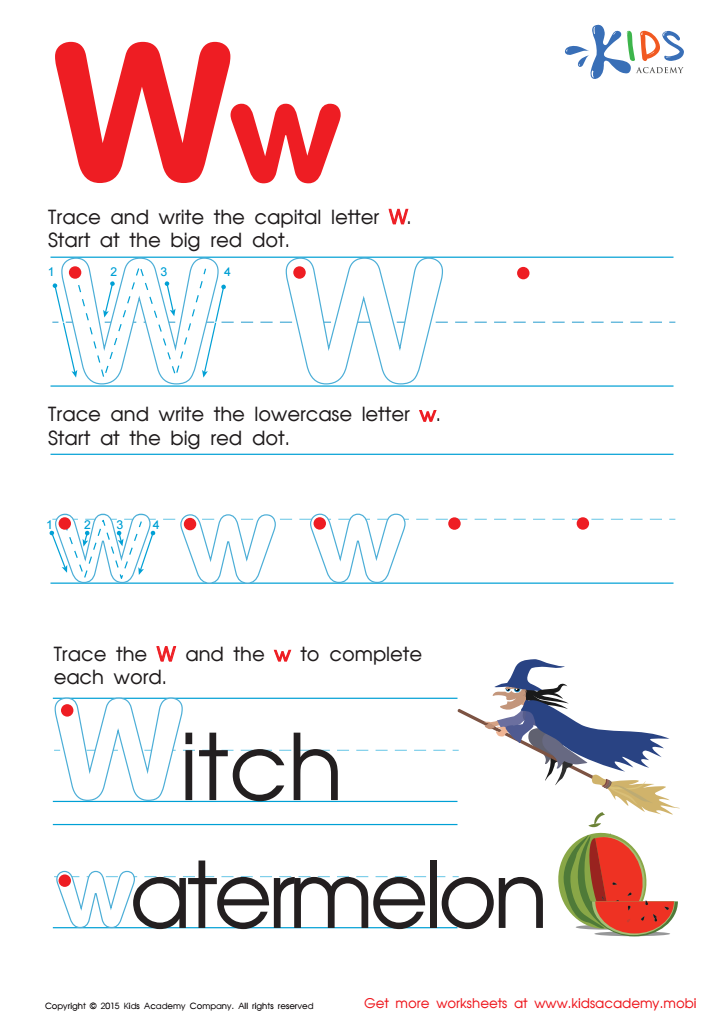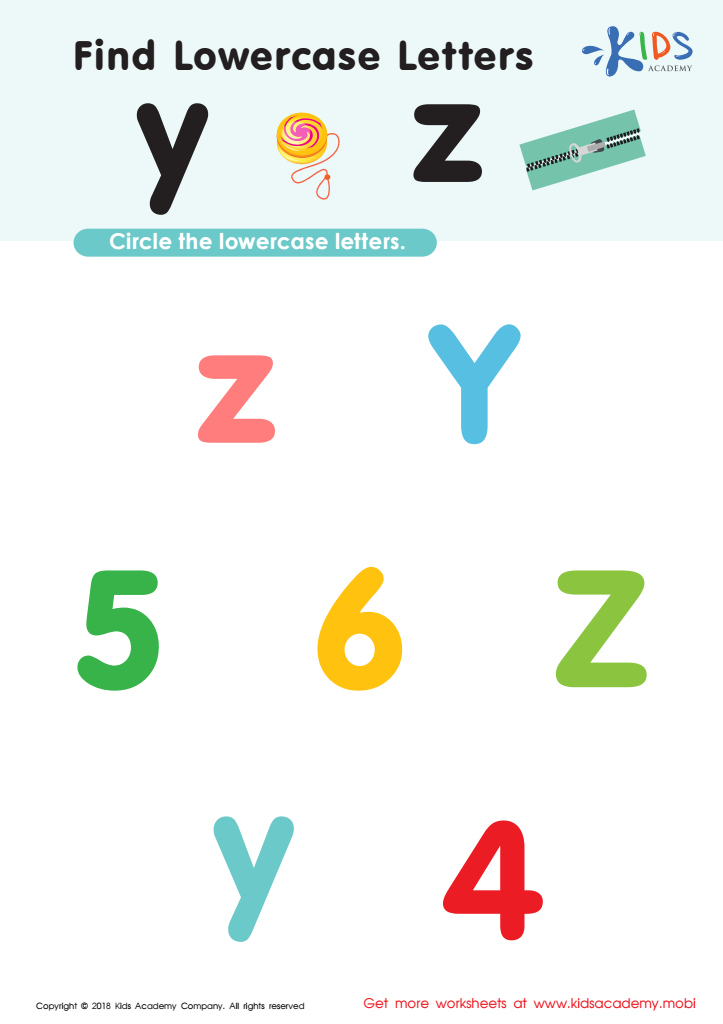Alphabetical understanding Letter Recognition Worksheets for Ages 3-4
3 filtered results
-
From - To
Introduce your little learners to the world of letters with our Alphabetical Understanding Letter Recognition Worksheets for Ages 3-4. Designed to make early learning fun and engaging, these worksheets help children become familiar with the alphabet, enhancing their letter recognition skills through playful activities. Each worksheet focuses on identifying individual letters and understanding their shapes and sounds. With fun illustrations and interactive exercises, our worksheets promote literacy readiness and boost confidence in young readers. Perfect for preschool and pre-kindergarten kids, these tools set a strong foundation for future reading and writing success. Start your child's learning journey today!


Letter E Coloring Sheet


Letter W Tracing Page


Find Lowercase Letters y z Worksheet
Alphabetical understanding and letter recognition are foundational skills crucial for early literacy development, making them essential for parents and teachers to prioritize for children aged 3-4. At this developmental stage, children's brains are rapidly growing, and they are highly receptive to learning new concepts. Recognizing letters and understanding the alphabet helps young learners to develop phonemic awareness, which is the ability to hear, identify, and manipulate individual sounds in spoken words. This skill is vital for reading readiness.
Proficiency in letter recognition enables children to make connections between written and spoken language. It aids them in decoding words as they begin to read, which is essential for their overall academic success. Furthermore, early mastery of the alphabet boosts confidence and encourages a positive attitude towards learning as children feel more competent in their abilities.
Parents and teachers play a crucial role in this process by creating a rich literacy environment filled with books, letter games, and engaging activities that encourage exploration and practice. By focusing on these early skills, adults can significantly enhance a child’s cognitive development, ensuring they acquire the foundational tools needed for lifelong literacy and learning success. Early intervention in developing these skills can also help identify and address potential learning difficulties, setting the stage for future educational achievements.
 Assign to My Students
Assign to My Students





















